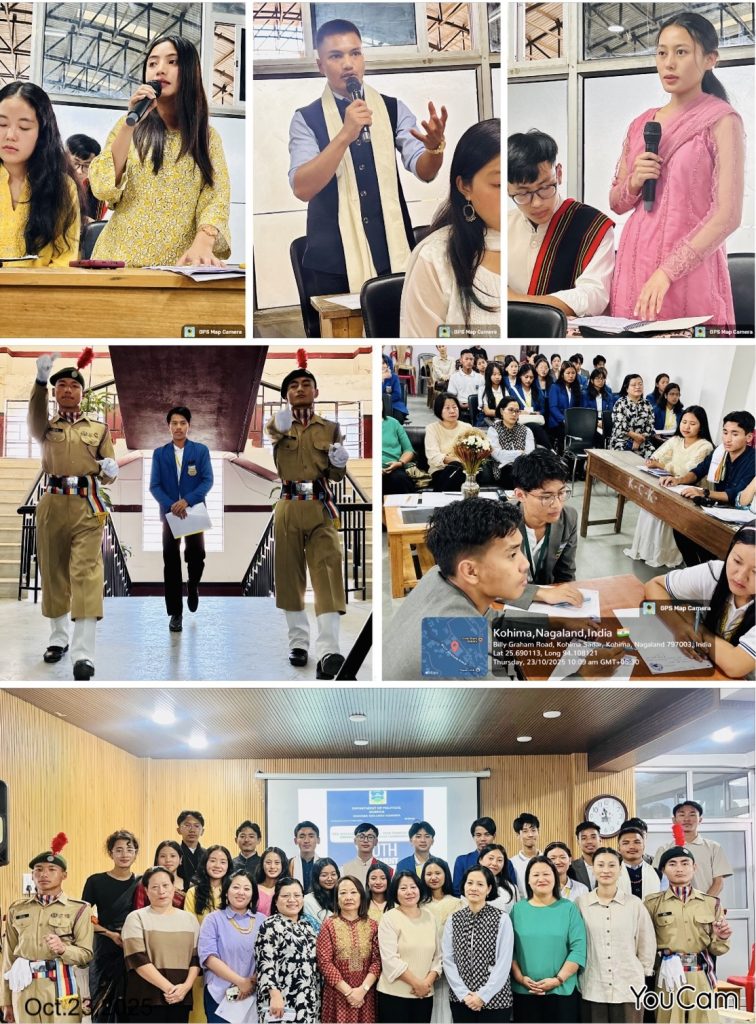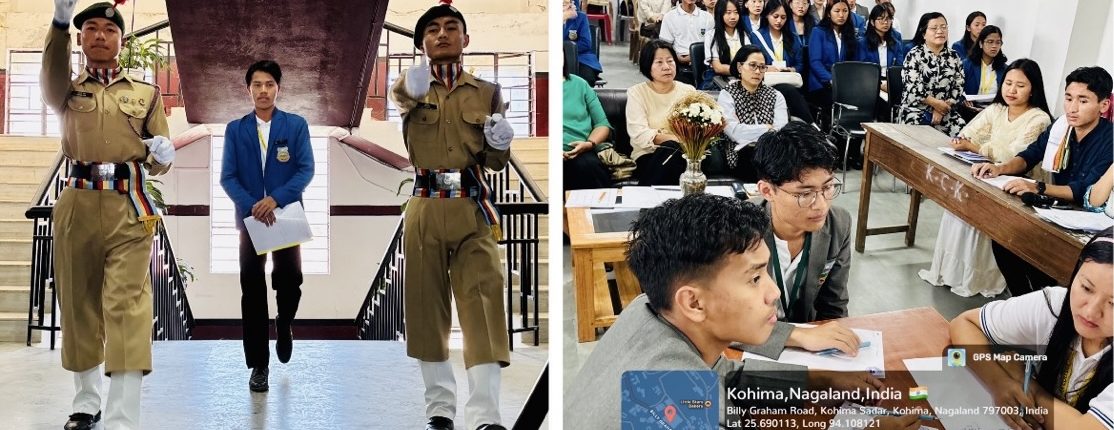The Department of Political Science, Kohima College, successfully organised its 1st Youth Parliament on the theme “33% Reservation for Women: Road towards Gender Empowerment and Inclusive Governance”. The event provided a vibrant platform for students to engage in a simulated parliamentary session and debate one of India’s most significant contemporary issues.
The programme began with a welcome address by Tiakumla Jamir, Associate Professor and Head of the Department of Political Science. The Speaker of the House for the session was Wati Lkr, a Political Science Honours student from the 3rd Semester. The panel of judges comprised of Dr. Konei Nakhro, Ase Yalie, and Kevinguno Rose, all Associate Professors from the Department of Political Science.
During the session, participants representing both the ruling and opposition parties presented spirited arguments. Members of the ruling party emphasised that the 33% reservation for women in political institutions was a necessary step towards bridging the gender gap in governance. They argued that India, despite being one of the world’s largest democracies with women constituting nearly half its population, continues to witness poor representation of women in politics — with only about 15% at the national level and less than 10% in many state assemblies. Speakers highlighted how societal barriers, domestic violence, and fear of harassment discourage women from entering political life, calling the bill a progressive step towards correcting historical inequality.
The opposition, however, raised critical concerns about the timing and implementation of the bill. They questioned the linkage of the Women’s Reservation Bill to future census and delimitation exercises, warning that such provisions could delay its enforcement. Several speakers also pointed out the absence of sub-reservation for OBC women and cautioned against the possibility of “elite capture,” where urban or privileged women might dominate the reserved seats while rural and marginalised women remain excluded.
Opposition members further argued that while they strongly supported women’s empowerment, true empowerment must arise from education, training, and social reform rather than dependency on reservation. One speaker noted, “Political participation should come through competence and leadership, not gender-based entitlement. We have seen women leaders like Indira Gandhi and Jayalalithaa rise without reservation — proving that women can lead through merit.”
The debate was intense yet constructive, with participants demonstrating impressive research, critical thinking, and oratory skills. The Speaker of the House lauded the participants for maintaining the spirit of parliamentary decorum and encouraging informed civic engagement.
At the end of the event, the results were declared:
1. Lenvishe (MA 1st Semester) – 1st Prize (₹2000 & Certificate)
2. Kekhrievor (BA 1st Semester) – 2nd Prize (₹1000 & Certificate)
3. Vetazo Veswuh (BA 5th Semester) – 3rd Prize (₹800 & Certificate)
The event concluded with closing remarks by the judges, who commended the Department for initiating the Youth Parliament as a platform to nurture political awareness and democratic values among students.

